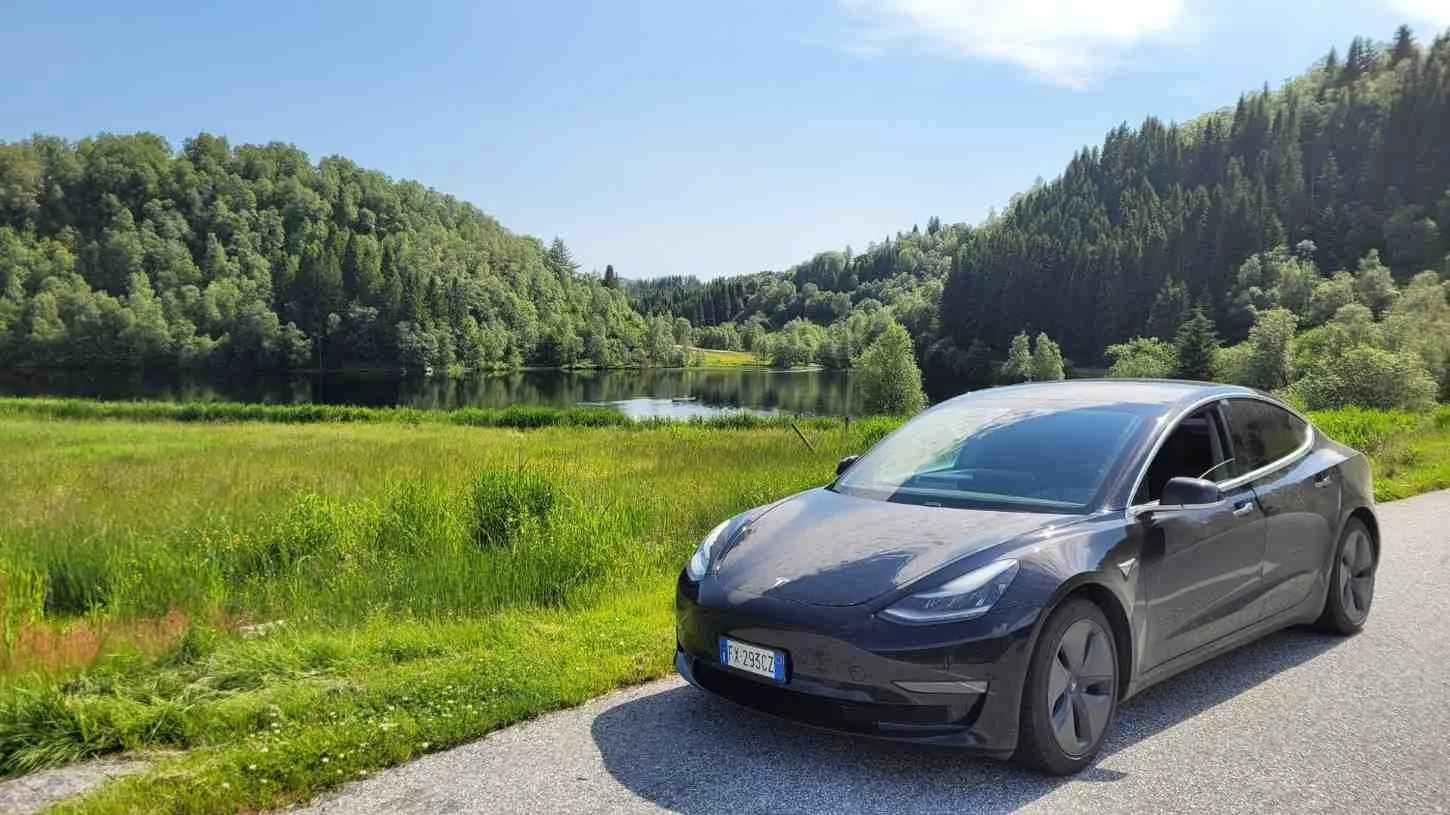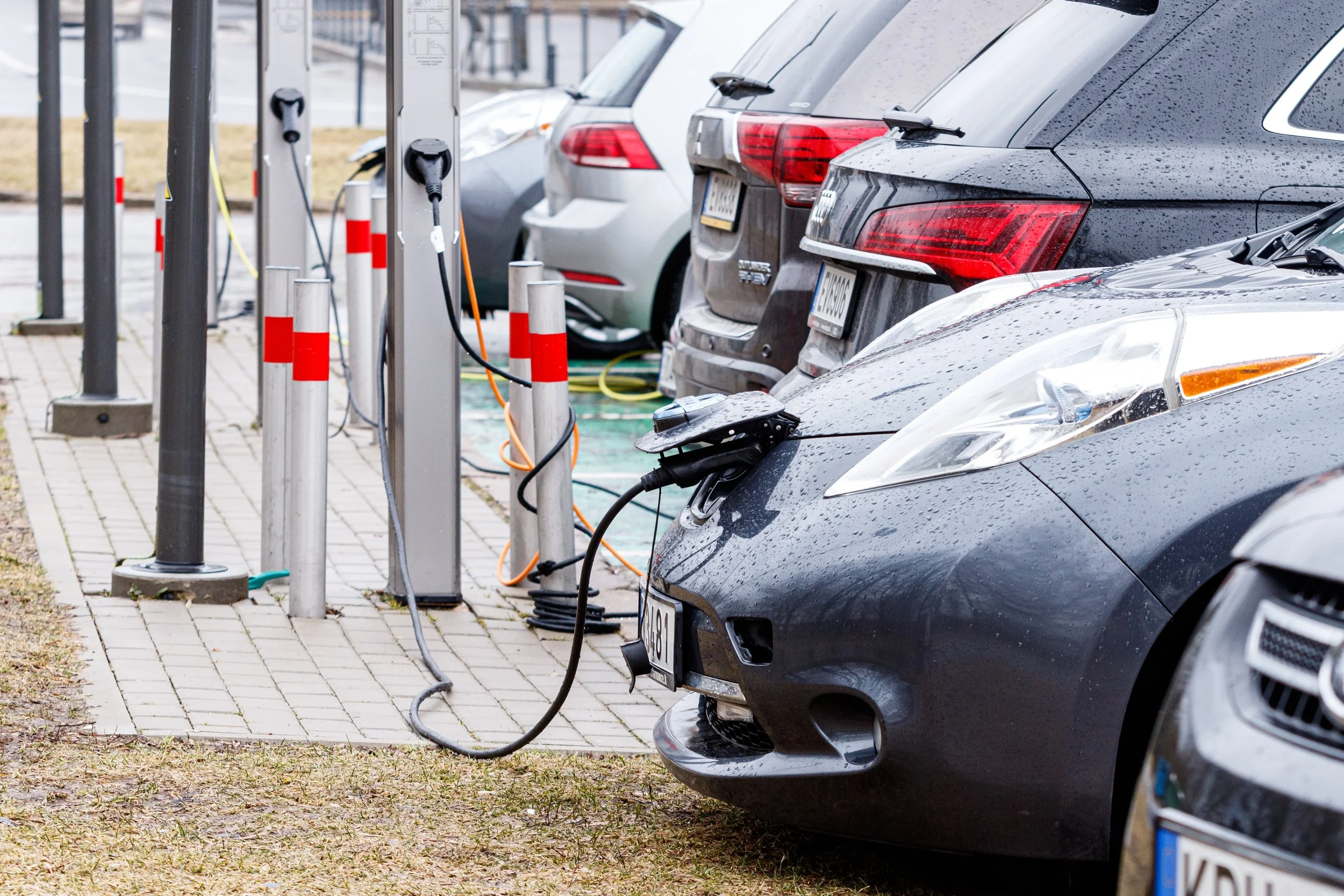Autumn Budget 2025: What to Expect for Electric Car Salary Sacrifice and EVs
Source: Shutterstock
Update: The budget has been announced - for up to date information - go to our latest article.
Introduction: A Budget That Shapes the Future of Transport
On Wednesday, Chancellor Rachel Reeves will deliver the Autumn Budget 2025, marking a pivotal moment for UK drivers, businesses, and the electric vehicle sector. With the government's zero-emission vehicle mandate requiring 80% of new car sales to be electric by 2030, this budget represents a critical opportunity to reinforce the UK's commitment to electrification whilst supporting working families and businesses through the transition.
For the thousands of employees already benefiting from The Electric Car Scheme and the businesses offering electric car salary sacrifice as an employee benefit, the good news is clear: electric car salary sacrifice remains secure.
Unlike other salary sacrifice arrangements that may face scrutiny, EV schemes continue to align perfectly with government policy objectives around decarbonisation and transport electrification.
This comprehensive guide examines what to expect from Wednesday's budget, with particular focus on how it affects electric car drivers, businesses offering salary sacrifice schemes, and the broader EV landscape.
Electric Car Salary Sacrifice: Secure and Thriving
BiK Rates Remain Unchanged
The most crucial news for current and prospective electric car salary sacrifice users is that Benefit-in-Kind rates are expected to remain unchanged. The current 3% BiK rate for fully electric vehicles represents one of the most attractive tax advantages available to UK employees, enabling savings of 20-50% compared to traditional car leasing or purchase.
This stability provides certainty for the 2025/26 tax year and beyond. As previously announced, BiK rates for electric vehicles will gradually increase to 5% by 2027/28, but these planned rises remain far below the maximum 37% rate applied to high-emission petrol and diesel vehicles.
For employees considering an electric car through salary sacrifice, this certainty means you can proceed with confidence. A typical employee in the 40% tax bracket leasing a Nissan Ariya through The Electric Car Scheme would save approximately £234 per month on income tax and £12 on National Insurance, with just £55 per month in BiK tax.
Potential Boost for Used Electric Vehicles
Industry sources suggest a low probability: reduced BiK rates for secondhand electric vehicles. If introduced, this would make used electric car salary sacrifice even more attractive, potentially opening up EV ownership to a broader range of employees and smaller businesses.
The Electric Car Scheme already offers an expanded used EV programme, making the switch to electric more affordable than ever - with hundreds of used EVs and Hybrids available. Any BiK reduction for used EVs would compound these savings, potentially reducing monthly costs by an additional 10-20%.
Tax and National Insurance: Stability Expected
No Changes to Income Tax or National Insurance
Unlike previous budgets that have introduced significant tax changes, Wednesday's budget is expected to maintain current income tax and National Insurance rates. This stability benefits both employees using salary sacrifice schemes and employers offering them.
However, speculation continues around an extension of the income tax freeze, which would mean tax thresholds remain unchanged despite inflation. This fiscal drag effectively increases the tax burden over time as more people are pulled into higher tax brackets – making tax-efficient benefits like electric car salary sacrifice even more valuable.
VAT Remains Unchanged
VAT rates are expected to remain stable at 20% for most goods and services. For EV drivers, this means:
Home charger installation continues at 0% VAT (when a charger is installed on a new build development - retrofit installations still attract VAT)
Public charging typically includes VAT at 20%
Vehicle leasing through salary sacrifice remains VAT-efficient for businesses
Employees using The Charge Scheme to salary sacrifice their EV charging costs alongside their vehicle can maximise these tax advantages, saving 20-50% on all charging whether at home, work, or public networks.
Important Distinction: Salary Sacrifice Pensions vs Electric Cars
Changes May Affect Pension Salary Sacrifice Schemes Only
It's crucial to understand that potential changes to salary sacrifice arrangements announced in the budget are likely to affect pension schemes only, not electric car salary sacrifice schemes. These are fundamentally different benefits with distinct policy objectives.
Salary sacrifice pensions fall under retirement savings policy, whilst electric car salary sacrifice directly supports the government's legally binding commitment to reach net zero by 2050 and the 2030 electric vehicle targets. Any restrictions on salary sacrifice schemes would logically exclude EVs to avoid undermining transport electrification goals.
Similarly, if changes are announced affecting cycle to work schemes, these would not extend to electric car salary sacrifice. Each salary sacrifice benefit serves different policy purposes and faces different regulatory frameworks.
EV salary sacrifice is a good way to reduce taxable income - opening up the financial bandwidth for childcare, and other benefits.
Why Electric Car Salary Sacrifice Remains Protected
The government has repeatedly emphasised its commitment to accelerating EV adoption. Key reasons why electric car salary sacrifice schemes remain protected include:
Environmental imperative: The UK must reach 80% EV sales by 2030 to meet legal obligations
Industrial strategy: Supporting UK automotive manufacturing and the EV supply chain
Energy security: Reducing dependence on fossil fuel imports
Public health: Improving air quality in urban areas
Economic benefits: Creating green jobs and export opportunities
Electric Vehicle Grant Funding: £1.3 Billion Boost
Substantial Investment Expected
One of the most significant expected announcements is £1.3 billion in additional funding for EV grants and charging infrastructure. This substantial investment signals the government's continued commitment to making electric vehicles accessible and practical for all drivers.
Whilst the Electric Vehicle Homecharge Scheme for private homeowners ended in 2024, this funding could support:
Expanded on-street residential charging for those without driveways
Workplace charging scheme extensions
Rapid charging network expansion along major routes
Potential revival of grants for specific user groups or vehicle types
For employees using company electric car schemes, improved charging infrastructure directly enhances the EV ownership experience, addressing one of the most common concerns about switching to electric.
The Ford Puma Gen-e is one of many cars eligible for the EV Grant - priced from £29,995 (after grant), with a range up to 233 miles.
The Electric Car Grant Scheme offers up to £3,750 off new electric cars priced under £37,000, automatically applied to both personal leasing and salary sacrifice schemes.
Discover our top 5 EVs on the Electric Car Grant Scheme for 2026.
Expensive Car Supplement Threshold Increase
Industry sources suggest a possible increase to the expensive car supplement threshold, currently set at £40,000. This threshold determines when additional VED - aka road tax (Vehicle Excise Duty) - charges apply.
If raised, this would make premium electric vehicles like the Tesla Model Y, and Mercedes EQS more affordable through salary sacrifice by reducing or eliminating the additional annual road tax charge.
Combined with the already generous BiK treatment, this could make high-end EVs significantly more accessible to a broader range of employees.
Fuel Duty and Road Pricing
Fuel Duty Freeze Likely to Continue
Despite environmental concerns, fuel duty is expected to remain frozen at current levels. Whilst this might seem counterintuitive to EV promotion, it reflects the political reality of cost-of-living pressures facing households still reliant on petrol and diesel vehicles.
For EV drivers, this freeze has no direct impact – you're already benefiting from significantly lower running costs. The average EV driver spends just £680 annually on "fuel" compared to £1,268 for petrol drivers, representing substantial savings regardless of fuel duty rates.
Consultation on Pay-Per-Mile Expected
More significant for long-term transport policy is the expected announcement of consultation on pay-per-mile road pricing. As EV adoption increases and fuel duty revenue declines, the government must find alternative ways to fund road maintenance and transport infrastructure.
Key considerations for any pay-per-mile system include:
Fairness: Ensuring rural drivers aren't disproportionately affected
Privacy: Addressing concerns about vehicle tracking
Implementation: Technical challenges of nationwide rollout
Transition: Phasing out current VED system gradually
For electric car salary sacrifice users, any pay-per-mile system would likely maintain preferential rates for zero-emission vehicles, preserving the economic advantage of EVs. The consultation phase suggests implementation is several years away, providing ample time for the EV market to mature.
Energy and Housing Measures
Electricity Bill Reductions
The government is expected to announce measures to reduce electricity bills, which directly benefits EV drivers who charge at home. Lower electricity costs amplify the already substantial fuel savings from driving electric.
With the average EV requiring approximately 3.5-4 miles per kWh, even modest reductions in electricity rates translate to meaningful savings over a vehicle's lease term. Employees using home charging alongside The Charge Scheme would benefit doubly from these reductions.
Boiler Upgrade Scheme Enhancements
Expected announcements around boiler replacement schemes complement broader electrification efforts. As more households switch to heat pumps and improve energy efficiency, peak electricity demand patterns may shift, potentially benefiting EV charging infrastructure planning and reducing pressure on the grid during peak periods.
Property Taxation for High-Value Homes
Speculation about property tax changes for expensive houses has no direct impact on electric car salary sacrifice schemes. However, if implemented, such measures could affect the broader economic environment and disposable incomes of some employees considering premium electric vehicles through salary sacrifice.
What This Budget Means for Employees
Certainty for Current Salary Sacrifice Users
If you're already driving an electric car through a salary sacrifice scheme, Wednesday's budget should provide reassurance. The stability of BiK rates and lack of negative changes means your savings remain secure. Your 3% BiK rate continues to deliver substantial tax advantages throughout your lease term.
Green Light for Those Considering Electric
For employees contemplating whether to switch to an electric car through salary sacrifice, the expected budget announcements remove uncertainty. You can proceed with confidence knowing:
BiK rates remain at historic lows
The government continues supporting EV adoption
Charging infrastructure investment is increasing
Your salary sacrifice arrangement is protected
Planning for 2025/26
With the new tax year approaching in April 2026, now is an ideal time to explore salary sacrifice options. The Electric Car Scheme offers access to over 1,000 electric vehicles, from affordable models like the Dacia Spring to premium options like the Porsche Taycan.
What This Budget Means for Businesses
Protected Employee Benefit
For employers offering electric car salary sacrifice as an employee benefit, the budget provides confirmation that this remains a tax-efficient, zero-cost benefit that supports recruitment, retention, and environmental, social, and governance (ESG) goals.
No Setup Costs or Financial Risk
The Electric Car Scheme offers Complete Employer Protection from day one, eliminating financial risks if employees leave. With no setup costs and straightforward administration, offering electric car salary sacrifice remains one of the most attractive employee benefits available.
Competitive Advantage
As talent competition intensifies, businesses offering comprehensive benefits packages that include electric car salary sacrifice gain a significant advantage. With potential minimum wage increases expected in the budget, salary sacrifice schemes become even more valuable as they don't reduce minimum wage calculations.
Corporation Tax and Business Planning
Expected stability in corporation tax rates provides certainty for business planning. Companies can continue to benefit from 100% first-year allowances on zero-emission vehicles, whether purchasing outright or facilitating employee salary sacrifice arrangements.
Frequently Asked Questions
Will the Autumn Budget 2025 affect my electric car salary sacrifice scheme?
No, electric car salary sacrifice schemes are expected to remain unchanged. The 3% Benefit-in-Kind rate continues, protecting your 20-50% savings. Any changes to salary sacrifice arrangements announced in the budget are likely to affect pensions only, not electric vehicles.
Are BiK rates for electric cars changing in the 2025 budget?
BiK rates are not expected to change in Wednesday's budget. The current 3% rate for 2025/26 remains in place, with previously announced gradual increases to 5% by 2027/28. There's a small possibility of reduced BiK rates for used electric vehicles, which would provide additional savings.
How does the £1.3 billion EV grant funding affect salary sacrifice users?
The expected £1.3 billion in EV infrastructure funding will improve charging availability and convenience for all electric car drivers, including those using salary sacrifice schemes. Better charging infrastructure directly enhances the EV ownership experience and addresses range anxiety concerns.
Will fuel duty changes affect my decision to switch to an electric car?
Fuel duty is expected to remain frozen, which doesn't directly affect electric cars. However, EV drivers already save substantially on "fuel" costs – approximately £600 annually compared to petrol vehicles – regardless of fuel duty rates. This saving is amplified through salary sacrifice's tax advantages.
What's the difference between salary sacrifice for pensions and electric cars?
Salary sacrifice pensions are retirement benefits that may face regulatory changes in the budget. Electric car salary sacrifice supports government environmental and transport policy, making it unlikely to face restrictions. These are separate arrangements serving different policy objectives, so changes to one don't affect the other.
Should I wait until after the budget to order my electric car?
No, there's no benefit to waiting. The budget isn't expected to introduce any changes that would make ordering after Wednesday more advantageous. With the current 3% BiK rate secured and no negative changes anticipated, employees can confidently order their electric car through The Electric Car Scheme now.
How might pay-per-mile road pricing affect electric cars?
Any pay-per-mile system is years away from implementation, as the budget is expected only to announce a consultation. If introduced, zero-emission vehicles would likely maintain preferential rates, preserving EVs' economic advantages. The consultation phase allows time for proper consideration of fairness, privacy, and implementation challenges.
Will the expensive car supplement threshold increase help me?
If the threshold increases from £40,000, it would reduce or eliminate additional road tax charges on premium electric vehicles. This would make high-end EVs more affordable through salary sacrifice, complementing the already generous BiK treatment for electric cars.
A Budget That Supports Electric Transition
Wednesday's Autumn Budget 2025 represents a moment of stability and reassurance for the electric vehicle sector. Whilst the broader budget may include various taxation and spending measures, the message for EV drivers and businesses is clear: electric car salary sacrifice remains protected, valued, and encouraged.
The expected £1.3 billion investment in EV infrastructure, potential improvements to the expensive car supplement threshold, and continued stability of BiK rates demonstrate the government's ongoing commitment to transport electrification. For employees and businesses alike, this budget removes uncertainty and provides confidence to proceed with electric vehicle adoption.
As Rachel Reeves delivers the budget on Wednesday, the takeaway for anyone considering The Electric Car Scheme is simple: the time to switch to electric has never been better. With 20-50% savings through salary sacrifice, a 3% BiK rate, and improving charging infrastructure, electric cars represent the smart financial and environmental choice for UK drivers.
Are you ready to save money while driving electric? Calculate your savings or book a demo to discover how The Electric Car Scheme can help your business offer this valuable employee benefit.
Are you an employer?
BOOK A DEMOAre you an employee?
SEE AVAILABLE CARSYou might also like…
The information provided on this blog is for general informational purposes only and should not be construed as tax advice or accountancy services. The information provided in this blog is speculative - and cannot be construed as an accurate reflection of the content of the actual budget - these predictions are subject to change. We are not qualified accountants or tax advisors, and nothing on this site should be relied upon as professional advice tailored to your specific circumstances. Tax laws and regulations are complex and subject to change, and individual situations vary considerably. For specific guidance regarding your tax obligations, financial planning, or accounting matters, we strongly recommend that you consult with a qualified accountant, tax advisor, or other appropriate professional who can assess your particular situation. We accept no liability for any loss or damage arising from reliance on the content provided on this blog.
Last updated: 24/11/2025
Our pricing is based on data collected from The Electric Car Scheme quote tool. All final pricing is inclusive of VAT. All prices above are based on the following lease terms; 10,000 miles pa, 36 months, and are inclusive of Maintenance and Breakdown Cover. The Electric Car Scheme’s terms and conditions apply. All deals are subject to credit approval and availability. All deals are subject to excess mileage and damage charges. Prices are calculated based on the following tax saving assumptions; England & Wales, 40% tax rate. The above prices were calculated using a flat payment profile. The Electric Car Scheme Limited provides services for the administration of your salary sacrifice employee benefits. The Electric Car Scheme Holdings Limited is a member of the BVRLA (10608), is authorised and regulated by the FCA under FRN 968270, is an Appointed Representative of Marshall Management Services Ltd under FRN 667174, and is a credit broker and not a lender or insurance provider.
Copyright and Image Usage: All images used on this website are either licensed for commercial use or used with express permission from the copyright holders, in compliance with UK and EU copyright law. We are committed to respecting intellectual property rights and maintaining full compliance with applicable regulations. If you have any questions or concerns regarding image usage or copyright matters, please contact us at marketing@electriccarscheme.com and we will address them promptly.







